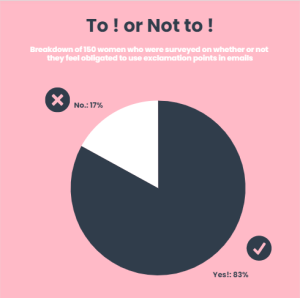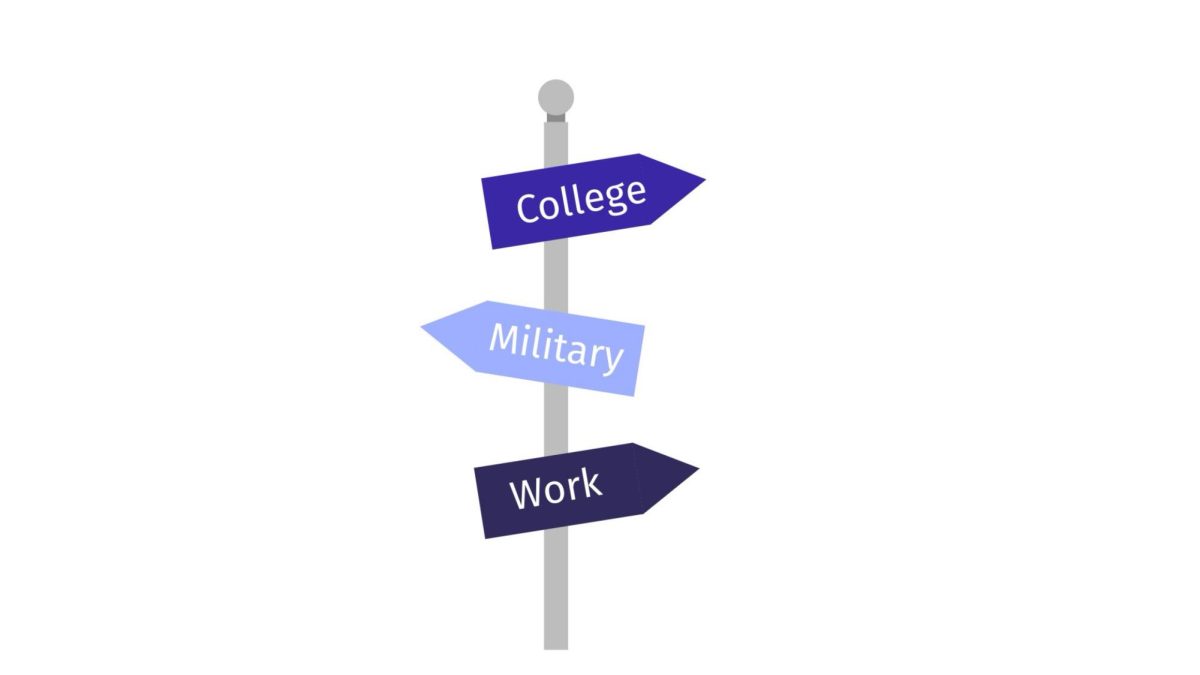Opinion: We Don’t Need to Use Exclamation Points Anymore!

The pressure for women to “soften” their digital correspondence with exclamation points needs to end.
April 22, 2022
You’re writing an email to your boss explaining how you won’t be able to make it to your shift this week. “I won’t be able to work on Sunday! So sorry!” you enthusiastically explain. Now, why did you feel the need to add exclamation points? Wouldn’t that make more sense if you had ended your explanation with periods?
Ladies, we’ve all written a similar email or message at one time or another. Since the dawn of time, women have felt obligated to be extra nice to people in order to not come off “rude” or “b*tchy,” especially in emails and text messages. Many women tend to use more exclamation points in order to not come off as short and uninterested when speaking to peers, coworkers, or bosses.
“Use too many exclamation points and you won’t be taken seriously, use too few and you can come off as cold,” said Georgetown linguistics professor, Deborah Tannen in The New York Times article.

As a woman, I am constantly overanalyzing how I sound in emails. Do I sound too callous?
Too short? When in reality I could just be sending my boss my availability and I shouldn’t have to worry because it is a simple message. The stress and anxiety that comes with that oftentimes makes me avoid emails altogether.
In her article, “Sorry for Bothering You!” writer Amelia Tate quotes the definition of emotional labor and how it affects people in the workplace.
“Opposed to the physical and mental work we do – and are paid for – in our jobs, emotional labor is extra. It is the process of managing your feelings, and the expression of these feelings, in order to do your job.”
She explains how many women and even men feel negative emotional labor in the workplace when they overanalyze messages.
“Exclamation marks, and the other ways we express our emotions in emails, can be a form of emotional labor for men and women,” Tate said.
Senior Autumn Jones describes her feelings towards the stigma around punctuation for women.
“Every time I write an email I notice sentence after sentence is followed with an explanation, almost to the point where it seems like I’m yelling,” Jones said. “There’s this stereotype that when women are assertive or straight-forward, we are seen as—for lack of a better word—b*tchy, yet when a man does the same he is seen as a boss; it’s the product of a much bigger unhealthy, and quite frankly sexist, stereotype.”
So why are we going out of our way, to make men feel more comfortable?
Many women have felt the need to little themselves to keep men happy for centuries. Why should we as women continue to go along with that? Whether it’s because the patriarchy has ingrained in us to always be cheery or just a natural instinct, I think it’s time we break that cycle and start normalizing using periods or other grammar choices in order to avoid the mental and emotional strain that comes along with over analyzing our messages. While this is just a small part of a much bigger issue of systemic sexism, it is one small step towards equality for all genders.







